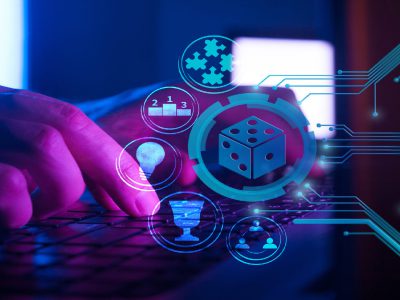Teaching at a distance involves ethical issues that are unique to this setting. The problem becomes considerably more complicated when distant education now includes online instruction. The ethical difficulties that teachers and students face are amplified in online education contexts.
Students benefit from eLearning because it utilises electronic technology to make learning easier and more efficient. Due to the fact that it is an alternative to the typical classroom, kids can get an education with fewer limits on space and time, with little to no bias against age or race as well as much simpler record-keeping and fewer concerns about student behaviour.
Traditional classroom education still has a reputation for being superior to online learning. The human touch in the classroom, according to some, maybe to blame for pupils’ low motivation. They also blame students’ incapacity to do assignments on a lack of control. E-learning also has the disadvantage of making academic fraud simpler since cheating online is easier than cheating in person.
Ethical Issues
The vast majority of college students have no notion if the information they come across online is positive or bad. The Internet, on the other hand, is an excellent source of information. Pornographic sites and sites teaching people how to construct bombs are among the many unpleasant websites it hosts.
Children’s well-being is the responsibility of parents and teachers, while educational systems are concerned with the preservation of society’s values and cultural legacy and the teaching of the next generation.
Appealing Concept
The identity issue is a critical one in online learning. Academic dishonesty may arise as a result of online education, according to some academics.
An academic diploma may not be awarded to students who actively participate in the learning process. Thus, there is an abundance of ethical difficulties to deal with in online education. In order to prevent dishonesty in online education, it is necessary to implement appropriate assessment procedures. All kinds of dishonesty must be avoided throughout the assessment process. There are a number of ways to ensure that the right individual is being evaluated during the evaluation process.
Examiners should employ a number of accrediting measures to lessen the likelihood of academic dishonesty. Web conferencing, for example, might be used to conduct the review. An assessment can only be done by a student who has been registered.
Issues in e-Conference
Examiners can utilise electronic conferencing to verify a student’s picture. The evaluation method should be designed to minimise all forms of dishonesty. A timer should be used to guarantee that students finish their assignments on time during online learning. As a result of this method, cheating will be less likely.
Ethical Issues Of Anonymity
One of the main reasons for the lack of practical ethics in IT and related industries is anonymity, according to experts. As has been claimed, in some areas of technology use, such as e-learning or distance education, the distancing itself can inflate a sense of empowerment through enhanced anonymity.
The anonymity of the interacting personals, according to several renowned internets and cyber critics like Levinas, is the most crucial cause for ethical issues to be breached. He feels that face-to-face communication has a specific ethical value. In activities like teaching and in-person knowledge transfer, this potentiality provides a sense of moral monitoring that is lacking in a virtual setting.

Ethical Issues for the eTeacher
While the real teacher in an eLearning environment must deal with ethical issues, the institution that is providing the eLearning opportunity has significantly more to deal with. The word “eTeacher” emphasizes that even eLearning is primarily based on a human relationship, although a new type of teacher-learner relationship with different patterns of interaction and association.
A new layer of educational infrastructure must be managed for eTeachers in order to make eLearning truly effective. Educators have always faced the challenge of providing adequate learning resources. In addition to books and study materials, strong network infrastructure with appropriate learning software is required. As a result, there are severe ethical concerns about network security and safety. “Soft lifting” and the unauthorised use of electronic resources necessitate the implementation of various copyright policies.
Education Without Ethics
The dominance of technology in educational programs or as a determining element in the learning process has decreased the role of human interactions and, as a result, practical ethics. The engagement theory approach to learning provides a thorough explanation of the problem.
However, the medium and its applications have become so established in the learning process that its basic role has been ignored, resulting in a number of inescapable consequences, including:
- The student is far more interested in the gadget application than in the learning process.
- It’s difficult to see e-ethics or computer ethics playing a practical role in this process.
e-Ethics
After noticing difficulties in educational and scientific technology domains, attempts to develop and enforce ethical rules go beyond mere discourse. E-learning and e-business are two areas where we have more theories than actual implementation. According to the ethical viewpoints of the legal profession, education, social relations, and business, many states have adopted research-based techniques to deal with the effects of technology on various aspects of public life.
Because of a multitude of factors, the use of technology can worsen e-ethical difficulties. These are some of the purported threats to education and the overall information system, according to reports.
- Computer abuses
- Computer crimes
- Theft of data
- Equipment malfunctions
- Destruction from viruses
- Errors in handling and usage of data.

The initial stage in this process is to learn as much as possible about the concepts in question. Numerous web pages about the subject are available on the Internet. The second phase comprises researching what the industry’s pioneers have been up to. Again, the Internet has a wealth of information in this area.
Finding out what, if any, legislation is applicable to one’s institution is the third and last element of the process. It is clear that an online course developer/instructor who is knowledgeable about the issues at hand and how they have been dealt with locally and internationally is in a better position to deal with these matters than someone who is entirely oblivious of them











